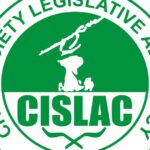The outgoing Minister of Science and Technology, Dr. Ogbonnaya Onu, made many promises on assumption of office in 2015. The one that set the social media buzzing was his promise that Nigeria would start producing pencil in two years.
He said Nigeria would start producing its own pencils in 2018 as part of a wholesale production sector revamp to be witnessed under President Muhammadu Buhari.
Speaking in an interview with Daily Trust, Dr. Onu said Nigerians would be amazed at the multiplier effects, which he said would include the creation of at least 400,000 jobs.
Onu had said, “We chose pencils to symbolise the problems that we have and our commitment to local production.”
He added that, “To produce pencils, we need wood, graphite, rubber for the eraser and possibly, we will need aluminium to hold the rubber in place. Then we may need paint to give it colour. But even if we don’t add paint or rubber, already we have a pencil and it will write.
“Now, we have all the things to produce a pencil, which is used by a large number of people from our young pupils to engineers, and it looks simple to produce, yet we have not been able to produce it. That is why we talk about producing pencils.
“We have asked PRODA (Projects Development Agency) to ensure Nigeria starts producing pencils in two years. It is actually not PRODA’s mandate to produce the pencils; no. PRODA is just to do the holistic research on pencil production in Nigeria. Somebody can start producing pencils here and will still be importing the wood, the graphite, the rubber, bringing in everything. No, that is not what we want.
He expressed worry that Nigeria had no single pencil-producing factory despite the ease of required technology.
He said, “PRODA has confirmed that there is not a single pencil-producing factory in Nigeria and even in West Africa. This is why we are worried.”
Onu also informed that the ministry was working with the organised private sector. “We are making them understand we have taken a big risk off them by doing research and development and clearing the pitfalls, so theirs is to come in and invest.
“The FIIRO (Federal Institute of Industrial Research) alone has developed more than 250 research studies up to the point of commercialisation. And in incubation, we have an agency in charge that has done up to 1,000 products. I have many of the products myself, and these are things we use on daily basis. Our major task now is to get these products into the market, but if they are not commercialised and maintained, how can people know they exist? We can then start creating jobs. Government will also start earning revenues from the taxes these producers will pay to government to do many things.”
Numerous trips abroad yielded little fruits
Apart from his failure to fulfil his pencil production promise, one area the minister did not perform well was attracting investors and partners despite his numerous trips abroad.
At the beginning of his tenure, Dr. Onu went to China and Indonesia for partnerships towards developing Nigeria’s science and technology sector, especially in local production.
He described the visits as a success, saying many of the agreements that were “reached” would boost local production.
However, Daily Trust reports that local production of goods has yet to start in most of the states in the country; although the country is still grappling with electricity problem.
Ministry failed to add value to human capital
Also, assurance from Onu that Nigeria would become a leading economy through value addition to human capital development in the area of science and technology did not become true.
Dr. Onu had also promised to redirect the economy from resource-based to knowledge-based thereby getting Nigerians to become more productive on issues that would add value to the exploitation of the nation’s natural resources.
Teaching sciences with indigenous languages plan
Another issue was his controversial plan to make students appreciate the sciences by studying them in their local Nigerian languages.
He planned that pupils in primary schools across the country should be taught the sciences and mathematics in local languages so that they could grasp the subjects very well and have sound footing in them.
Speaking during an interaction with pupils of Ekulu Primary School, Enugu, Onu said the move would make pupils and students get more interested in science subjects.
He was at the school to present computer sets and other science kits donated by the ministry to the school.
Onu had said, “The Ministry of Science and Technology is worried over the low interest in mathematics and the science subjects, so, we are working on plans to teach mathematics and sciences in indigenous languages in primary schools.
“These pupils grow up with their indigenous languages at home before they start going to school, where they are now taught in foreign languages. So, we have observed that there is a challenge to understand the foreign languages first before they can even start understanding what they are being taught.
“We believe that this plan will help our students to understand mathematics and the science subjects, and also promote the application of science and technology for national development.
“Our ministry has looked around the world; how nations attained greatness, and all the countries that are doing very well use indigenous languages at very early age in the teaching of science and mathematics.”
The minister said the process would involve strengthening and further development of indigenous languages to accommodate emerging science vocabularies and that such move would also save local languages from extinction.
But the plan has not materialised four years after.
Commercialisation of sickle cell food supplement
However, Dr. Onu recorded some achievements as in the early days of his tenure, the Federal Institute of Industrial Research Oshodi (FIRRO), a parastatal under the Ministry of Science and Technology, signed a Memorandum of Understanding (MoU) on the commercialisation of nutraceutical and therapeutic food products for the management of sickle cell anaemia and Ready-to-Use Severe Acute Malnutrition (SAM) supplement.
The Director General of FIRRO, Dr. Gloria Elements, said the envisaged estimated annual demand for the nutraceutical product when fully commercialised was in excess of 90,000 metric tonnes with N50bn revenue.
Giving remarks on the second product, Dr. Elements said the Ready-to-Use Therapeutic Food (RUTF) from indigenous raw materials had the capacity to solve the malnutrition problem of both children and adults, especially at various Internally Displaced Persons (IDPs) camps, adding that Nigeria currently imported about 4,500 metric tonnes of RUTF annually (mainly through UNICEF) valued at about N56.5bn.
The FIRRO boss remarked that the products were developed from a combination of two legumes that were available in commercial quantity in Nigeria, saying the products had been fully analysed scientifically, tested clinically and found potent for eliminating or reducing the effect of health and nutrition challenges confronting the African continent or black race in general.
Highlighting the tests carried out on the nutraceutical supplement, she said, “Renowned hematologists, nutritionists, dietetics, pharmacists, food technologists, etc. have subjected the data from the various studies to scientific critique for product enhancement and the conclusion of the experts on the products has been very encouraging and promising due to overwhelming scientific evidences both locally and internationally on the potency of the product for management of sickle cell anaemia.”



